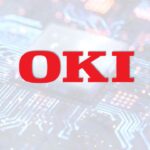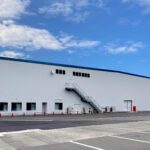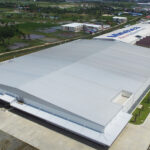ASIA ELECTRONICS INDUSTRYYOUR WINDOW TO SMART MANUFACTURING
Silitech Moves to Soar Battery Grit in FDK Deal
Silitech Technology Corporation has moved to launch a public tender offer for the common shares of FDK Corporation, which manufactures and sells various types of batteries and electronic devices. Accordingly, Silitech’s move aims to keep the company at pace with the advancements of AI technology, which would require devices to have durable batteries.
The planned number of shares for the public tender offer is 15,527,400 common shares. Therefore, it is approximately 45% of the total outstanding shares of FDK, which amounts to 34,505,245 shares. The tender offer will be successful if the final valid number of shares to be tendered must reach the planned acquisition quantity.
Silitech, along with Fujitsu Limited, the parent company of FDK, have already signed a tender agreement.
Fujitsu currently holds 20,295,422 common shares of FDK, representing approximately 58.82% of the outstanding shares. Consequently, Fujitsu will tender all of its shares in FDK as stipulated in the agreement. However, Silitech will only acquire shares within the planned acquisition quantity. The tender offer price is 435 Japanese yen per common share.

Leading Technological Edge
Silitech provides customers with design and manufacturing services based on core materials and technical processes. Specifically, integrating rubber, plastic, optics, film, glass and other mechanical components. This covers in applications such as automotive interior modules and panel appearance modules.
In addition, Silitech remains committed to the development of mechanical integrated components such as wearable products, smart lock, networking, and IoT. IOt also continuously enhances its competitive advantages in the automotive and 5G sectors to expand its market share.
Meanwhile, FDK, established in 1950, focuses primarily on the manufacture and sales of various types of batteries and electronic devices. Its business also includes battery modules, energy storage systems, and next-generation batteries/energy-related electronic devices.
Beyond current battery technologies, FDK aims to becoming the industry’s “Smart Energy Partner”, dedicating to the research and development of safe and efficient energy utilization methods. FDK’s NiMH Battery is the number one in global market share, due to their high durability, high-rate discharge, standardization, and dry cell compatibility. Meanwhile, its Lithium Primary Battery, because of their stable discharge voltage, high flexibility for product design, wide temperatures coverage, and over 20 years life, is in the leading position in cylindrical battery products.
Additionally, FDK continues to maintain a technological leadership advantage in emerging energy storage and smart applications. Moreover, FDK maintains a leading technological edge in emerging energy storage and smart applications while fulfilling its social responsibility for environmental protection.
Batteries to Play Crucial Role
After the completion of this public tender offer, FDK will remain listed on the Tokyo Stock Exchange and will work to strengthen the collaboration between the two companies to expand the business scale.
Building on existing products, the extensive business network will expand the customer base and sales markets, bringing new product portfolios and growth momentum. Through the integration of production capacity, this will contribute to improved operational efficiency, the expansion of EMS operations, and further optimization of manufacturing, R&D costs, and core competitiveness. Additionally, the expansion of production bases will help reduce operational risks, enabling the provision of more competitive products and services to customers, thereby enhancing the operational advantages of both companies.
Through this business collaboration, Silitech will expand its business into the energy and power products sector. With the advancement of AI technology, the demand for high-performance, long-lasting, and lightweight batteries will continue to grow. Additionally, market trends such as the need for mobility and convenience in electronic devices, IoT, and smart cities will heavily rely on battery development.
18 February 2025




